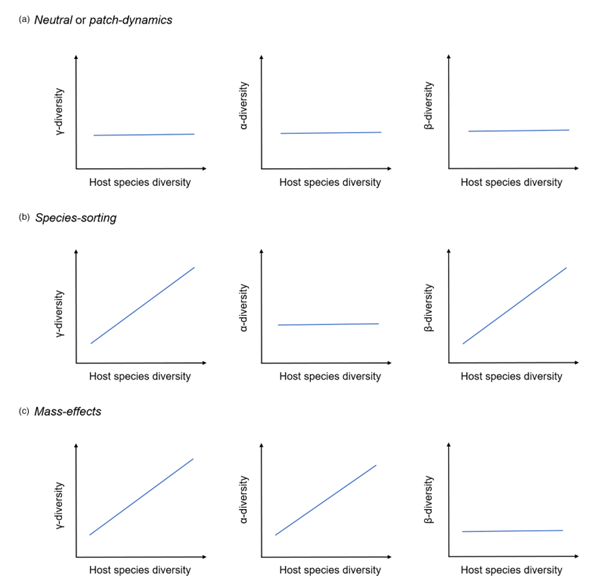2023 HARPER PRIZE SHORTLIST: Throughout March, we are featuring the articles shortlisted for the 2023 Harper Prize. The Harper Prize is an annual award for the best early career research paper published in Journal of Ecology. Xian Yang’s article ‘Different assembly mechanisms of leaf epiphytic and endophytic bacterial communities underlie their higher diversity in more diverse forests‘ is one of those shortlisted for the award:
👋 About me
I grew up in Beijing, China. Spending most of my early life in urban areas, I had little experience in the wild, which felt distant and mysterious to me. It wasn’t until my sophomore year of college, while pursuing a major in Environmental Chemistry, that my journey into ecology began—an unexpected turn inspired by a field trip to Changbai Mountain. This location, celebrated for its unique vertical vegetation belts, was where my fascination with ecology took root. Exploring the diverse ecosystems from temperate mixed forests to alpine tundra, I was amazed by the interesting and complex interactions in nature.
Motivated by this experience, I pursued a master’s degree in Ecology at Peking University. There, I had the opportunity to conduct extensive vegetation surveys across China’s varied landscapes, where I noticed how much human activities have changed the ecosystems, deepening my commitment to ecological studies. My doctoral research at Georgia Institute of Technology delved into the effects of various anthropogenic environmental changes, such as nutrient enrichment and habitat fragmentation, on the assembly of plant and microbial communities.
My postdoctoral research focused on the phyllosphere microbiome, a relatively understudied area ripe with potential for new discoveries, and it was also the focus of my shortlisted paper. Now, as an Assistant Professor at Sun Yat-sen University, I continue to investigate the complex dynamics of ecological communities, with a special emphasis on microbial communities that form symbiotic relationships with plants, and examine how human-induced environmental changes influence these communities.
🔎 About the shortlisted paper
Leaf-associated microbiomes, which are known to influence host plant fitness and ecosystem functioning, have received much recent attention. My prior research investigated the impacts of habitat loss and fragmentation on community assembly, employing metacommunity theory as a fundamental framework. These works led me to view leaf microbiomes as metacommunities, considering leaves and trees not merely as biological entities but as distinct habitat patches within a broader, living landscape. Yet, I found that this comprehensive theoretical framework had scarcely been applied to the study of leaf microbiomes. It appeared that the complex world of microorganisms living on and within plant leaves could greatly benefit from the insights provided by metacommunity dynamics, particularly due to the dispersal of these microorganisms among leaves and the dynamic interactions between these microorganisms and their plant hosts.
This realization inspired the research presented in our shortlisted paper, where we pioneered the application of metacommunity theory to leaf microbiome studies. We proposed a new framework that leverages host biodiversity gradients to identify different archetypes of host-associated microbial metacommunities (Figure 1).


We then applied this framework to decipher the assembly mechanisms of leaf microbiota in a large-scale forest biodiversity experiment in subtropical China (the Biodiversity–Ecosystem Functioning Experiment China [BEF-China], Figure 2). Our findings revealed that distinct assembly mechanisms characterize leaf epiphytic and endophytic bacterial communities, despite their shared positive relationships between plot-level host and bacterial diversity. These findings suggest that plant biodiversity loss could inevitably lead to a reduction in leaf microbiome biodiversity. However, the mechanisms underpinning this loss may vary for bacteria inhabiting different plant habitats, potentially carrying significant implications for ecosystem functioning mediated by these bacteria.
Find Xian Yang on GoogleScholar.
Read the full list of articles shortlisted for the 2023 Harper Prize here.

